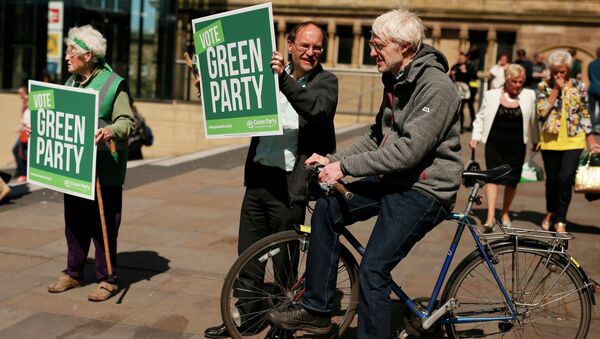On Tuesday, the British Trade Union Congress (TUC) released a report suggesting that UK living standards, measured over a five-year period, fell for the first time in over half a century.
“The poorest have been squeezed through cuts and benefit sanctions, while those at the very top have become richer,” Jonathan Bartley told Sputnik. “Britain will only have a stable and resilient economy when we have a more equal society, not an economy that squeezes those at the bottom even harder.”
He stressed that the TUC report is right to highlight the detrimental impact of the government’s austerity policies.
“It is a welcome intervention to a sterile election debate about accountancy, rather than the true impact of the economic plans of the big parties,” Bartley said.
The Green Party representative underlined that austerity was “economically illiterate,” and the super-rich should be taxed more. Bartley explained that the problem is not the lack of money, but that the money is in the wrong hands.
As the United Kingdom prepares for its general election on May 7, the Green Party pledges to raise child benefit, introduce a citizen’s pension, and make the minimum wage a “living wage.” A million new good jobs, many in the public sector, are promised through investing in the NHS and providing free social care for the elderly.
According to the TUC's survey, which compared data from the Office for National Statistics (ONS), between 2010 and 2014 living standards fell by about 0.6 percent. Even during the financial crisis between 2008 and 2012, this indicator rose by 1.5 percent compared to the preceding period, the TUC noted.
Jonathan Bartley said that even though the UK is the world's sixth richest nation, over a million people are using food banks, many of whom are in work, 3.5 million children and 1.6 million pensioners are in poverty.
Since 2010, the United Kingdom has been applying austerity measures aimed at cutting the country's budget deficit spearheaded by the Conservative-Liberal Democrat coalition government. The program was initially designed to last until 2015.
In 2012, Chancellor of the Exchequer George Osborne announced the extension of the program into 2017 or 2018, a move he justified by the fact that the government had failed to meet some of its targets.




